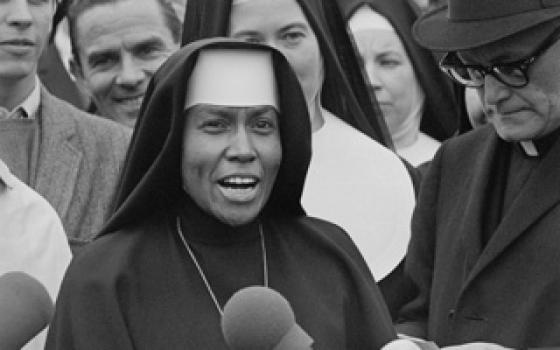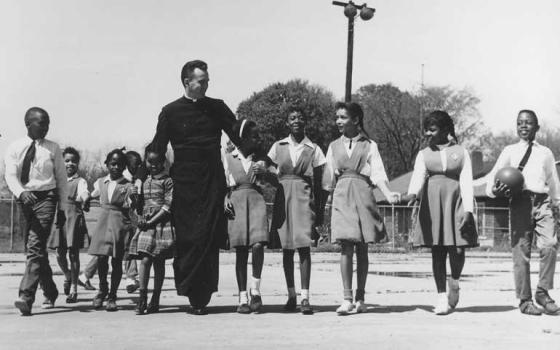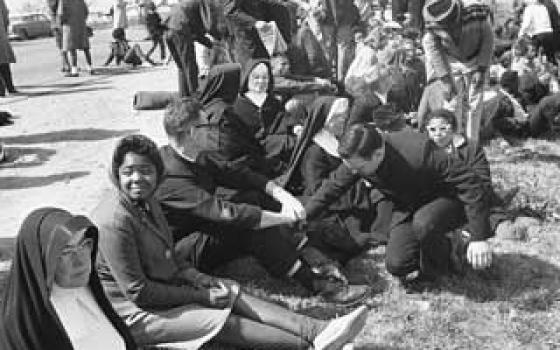Editor's note: Every day this week, NCR is publishing reflections of Bloody Sunday, its aftermath and the march from Selma to Montgomery, to commemorate the march's 50th anniversary. Click the 'Selma' tab above to see all of Global Sisters Report's coverage.
The voting rights demonstrations led by Dr. Martin Luther King Jr. 50 years ago in Selma, Alabama, are among the most significant events of the modern civil rights movement. They successfully rallied supporters of racial justice behind the need for government action to protect the right to vote long denied to African-Americans. The Voting Rights Act, described by many as the single most important piece of legislation passed by Congress in American history, was a direct result of the Selma protests.
Catholics played a prominent role in Selma, much more than in previous civil rights demonstrations. Never before had Catholic activists turned out in such large numbers. Now, on the 50th anniversaries of Bloody Sunday and the Selma-to-Montgomery march, it is fitting to honor those who participated in these historic events in March 1965.
Early in 1965, Edmundite Fr. Maurice Ouellet, pastor of St. Elizabeth's African-American mission in Selma, answered a knock at his door. He was surprised to see King standing on the front step.
"The Negro people tell me there is one white man in Selma who is black," King said by way of introduction, "and I want to meet him."
Read and comment on the full story at National Catholic Reporter.


